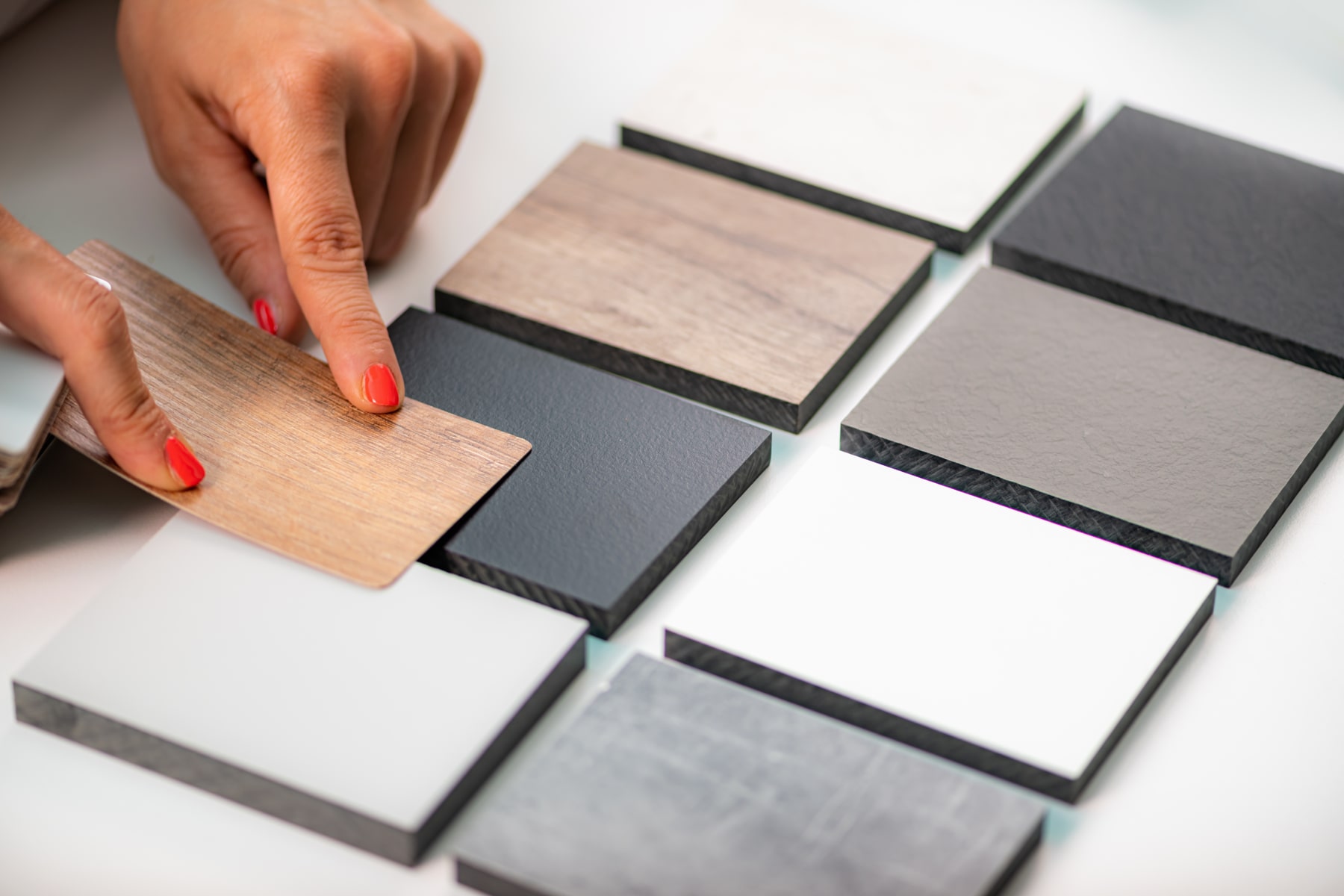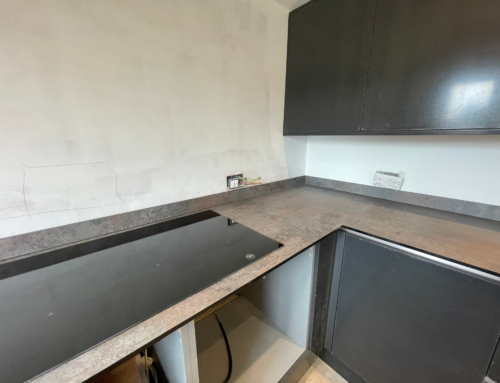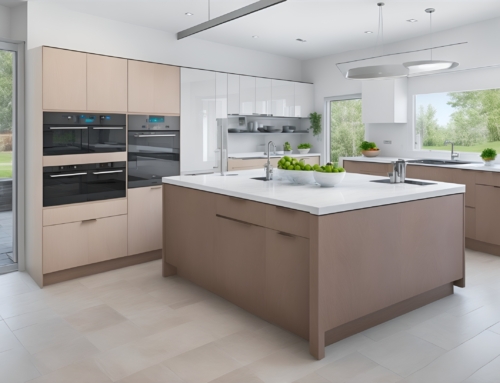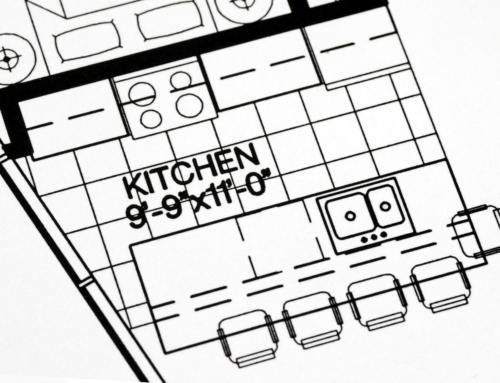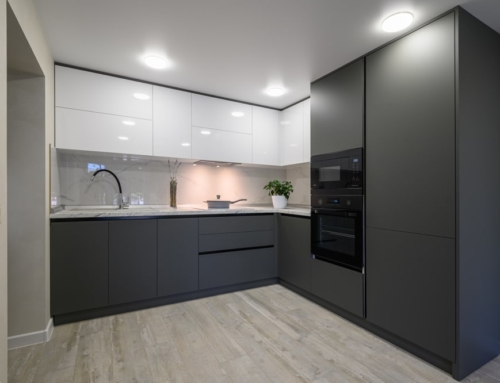When choosing the best kitchen worktop for your needs, two of the most popular products are laminate and compact laminate surfaces. Both materials offer a range of benefits, so it’s important to understand the differences before you make an informed decision.
In our expert worktop guide, we’ll dive into the differences between these two materials, exploring their advantages and offering insights to help you determine which type of kitchen counter suits your needs.
Compact laminate worktops vs. laminate worktops – what’s the difference?
Compact laminate and laminate countertops may sound similar in name, but there are some key differences between them.
Laminate kitchen worktops are manufactured using paper and resin layers fused together under high pressure and heat. This creates a composite wooden particle for the core board, while the worktop surface is covered with a decorative layer that mimics other materials, like wood, marble, quartz or granite. Available in a range of designs and colours, laminate worktops are chosen for various interior styles.
Compact laminate worktops are created using a similar process to laminate counters but with thicker layers, more resin and no chipboard substrate in the centre. This results in a single slab with added layers for a denser, more robust finish, which is why they’re sometimes known as solid laminate worktops. These worktops are incredibly durable and resistant to moisture, impact and heat while offering a monolithic appearance that offers stone-like aesthetics.
What are the benefits of laminate worktops?
There are many benefits of laminate worktops, including cost-effective options and design flexibility to give you freedom when finding the right pattern, colours and overall look for the final piece.
Their non-porous nature makes laminate countertops a low-maintenance option and easy to clean (fantastic for kitchens) while remaining resistant to staining. If you find a good worktop installer, they’ll have access to leading laminate brands, including Apollo, Axiom, Bushboard, Duropal, Spectra and Wilsonart.
Why choose a compact laminate worktop?
Contemporary compact laminate worktops are highly indestructible, durable and resistant to wear, moisture, heat and impact, making them suitable for busy kitchens and high-use areas. The solid and non-porous nature of compact laminate surfaces makes them hygienic and easy to clean, which is crucial for kitchen environments.
Compact laminates have excellent dimensional stability, so they are less prone to warping or swelling in changing temperatures and humid climates. They’re ideal for a range of applications, including commercial kitchen worktops.
What type of kitchen worktop is best for you?
When weighing up the debate between laminate vs. compact laminate worktops, there are lots of elements to consider.
If you need a cost-effective, versatile material in a less demanding environment, laminate counters could be the right choice. However, if you want a more solid appearance with added durability, and you need a high-traffic worktop to withstand heavy use, moisture and heat, compact laminate may be your preferred product.
Your final decision should depend on your priorities and the specific requirements of your space. By considering your needs, budget and the demands of your kitchen environment, you can select the worktop material that best suits your lifestyle and design preferences.
Want a laminate or compact laminate worktop quote? Get in touch
Olly London Worktops offers expert services throughout the South East, installing all types of worktops in Berkshire, Croydon and beyond.
For a free quote, please contact us now.

